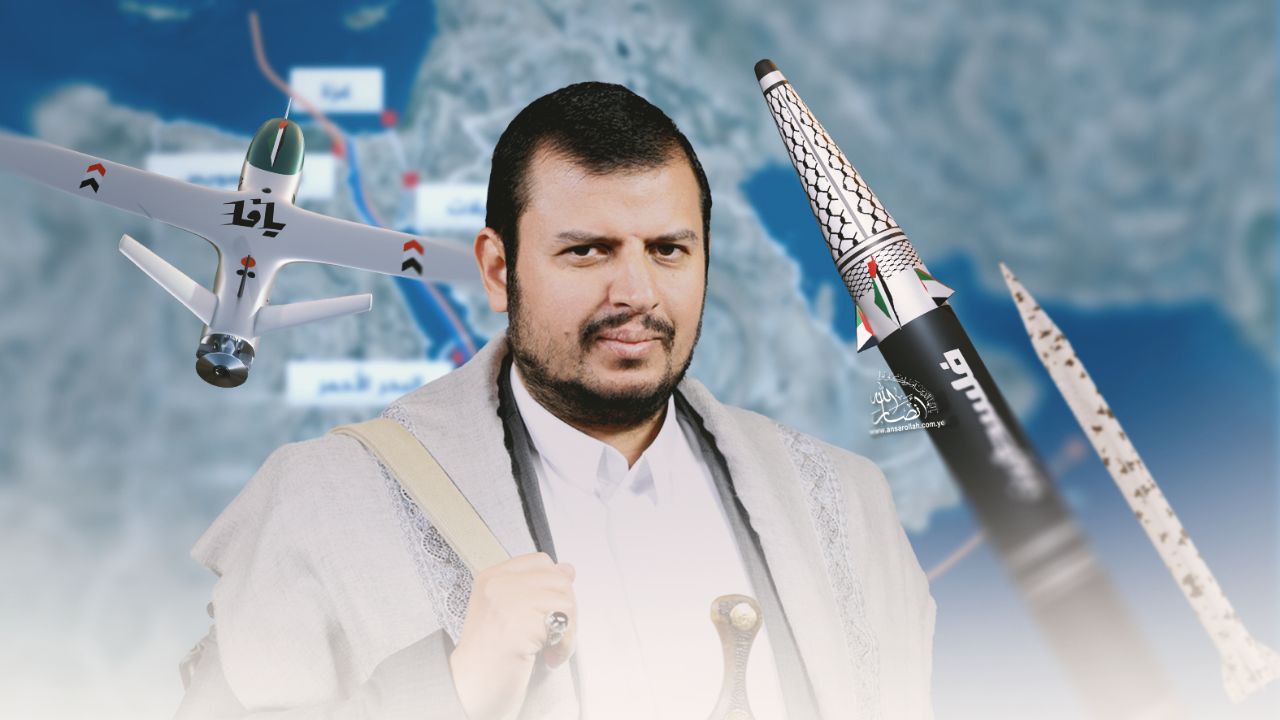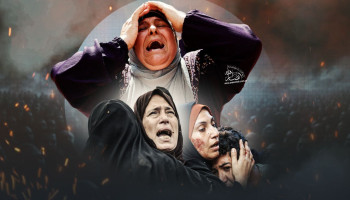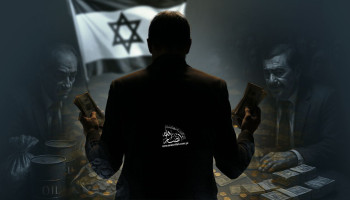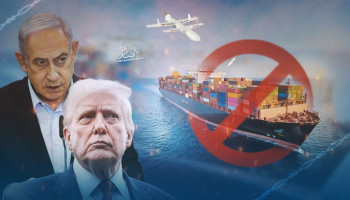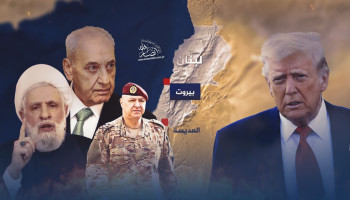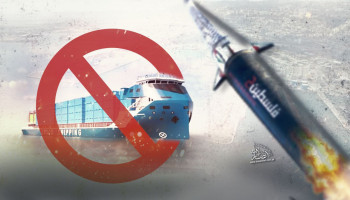Ansarollah Website Official Report
Published: Safar 18, 1447 AH
Palestinian writer and journalist Khaled Barakat, one of the founding members of the Palestinian Alternative Revolutionary Path Movement, has declared that Yemeni military operations in support of Gaza are “injecting new pulses of life into the wounded Palestinian body,” adding that “whoever downplays the importance of these Yemeni operations also downplays the importance of both Palestine and Yemen.”
In an extensive interview with Ansar Allah, Barakat praised Yemen’s revolutionary model under al-Sayyid Abdul-Malik Badruldeeen al-Houthi and contrasted it with what he described as Arab governments’ complicity or paralysis in the face of Israel’s war crimes. He discussed Gaza’s resilience, the role of the Egyptian regime, the situation in the West Bank, the threat to Al-Aqsa Mosque, and the transformative effect of Yemen’s weekly mass rallies and military engagement.
Barakat: The occupation army is floundering, its confusion growing as it commits greater crimes. With every hour that passes, it becomes clearer to the Zionists themselves that their army has failed, first and foremost in the eyes of its own society. It can no longer offer settlers “security,” nor can it sustain the policy it believes is “maximum pressure,” meaning: more massacres, more genocide.
Today, the occupation believes that starvation is its last weapon against the resistance and against the community that supports it. This is the people of Gaza—the popular base of the resistance—that has offered a legendary example over the years of siege. The occupier’s policy is to collectively punish them, starve them, and destroy them to make them “regret.”
The Zionist entity has been practicing starvation since before October 7, calculating each calorie for each child in Gaza, allowing only what it wants in, and closing the crossings whenever it chooses. Since October 7, the starvation has been on an unprecedented scale. The occupation has crossed every red line, causing great harm but also exposing its reality and its failure.
We must exert popular and armed pressure, open the Rafah crossing unilaterally from the Egyptian side, and bring in the aid piling up on the other side. The Egyptian regime has moved from silent complicity to active participation in slaughtering and starving our people. Egyptians must rise up against the Camp David regime and launch a popular movement—not only for Gaza but for Egypt’s dignity.
Barakat: The occupation cannot take complete control of Gaza unless it expels its people. In 1967, Israel occupied Gaza from Egypt in a few hours without a battle, but the very next day armed resistance erupted. In the early seventies, the entity admitted that it only “occupied Gaza by day,” while the fedayeen controlled it at night.
Gaza is a thorn in the enemy’s throat. The occupation has tried for decades to remove it but has failed. Leaders have said, “I wish the sea would swallow Gaza,” because they see it as a swamp, a big problem, and hell.
After 22 months of massacres and total war, the army has failed to establish its control over the areas it entered, suffering heavy losses. Its only “solution” is scorched earth and the “final solution” of complete expulsion.
No army can occupy Gaza and stay there without uprooting its people. Even if it managed to do so, there would be no calm unless it emptied Gaza of Palestinians.
Barakat: A weapon’s value lies in its suitability for the fight and its ability to inflict losses on the enemy. In Palestine, a single rifle in Gaza, the West Bank, or al-Quds terrifies the Israeli entity more than all the Arab armies combined—if the fighter has political will and a clear compass.
Weapons alone are useless without intent. The Palestinian Authority has 100,000 firearms in the West Bank, but in the confrontation with the enemy, they are worth zero. Any weapon that denies the enemy comfort and dominance is effective, even if it is just a pistol, a knife, or a vehicle.
Barakat: The West Bank’s challenges are many. First, the occupation’s military control and its system of settlements and armed settler militias—over a dozen militias with half a million weapons. Then there are the PA’s 17 security agencies, whose mission is “security coordination” with the occupation.
More than 90% of our captives taken by the Israeli entity come from the West Bank—about 11,000 detainees, many of them seasoned revolutionary cadres who remain influential in their communities.
The West Bank has armed and popular resistance, but the major challenge is organizing the masses to bypass the PA’s obstruction and face the occupation directly. We need to isolate collaborators, unify the national leadership, reduce NGO dependence, revive underground armed struggle, rebuild unions and student movements, protect the economy, and adopt a new revolutionary framework to defeat the PA’s project and build a new people’s authority.
Barakat: The Zionists want to destroy al-Aqsa Mosque and replace it with their so-called temple. This is a declared goal. They burned it in 1969, and their targeting of it is intensifying. We must have an effective plan to defend al-Quds; it cannot be left to its residents alone.
Barakat: Arab regimes’ behavior is disgraceful, though not surprising. Their decline has reached unprecedented depths. Arab peoples, parties, and elites are paralyzed. Yemen is the exception—it has a leader, a vision, organization, and weapons, under Sayyid Abdul-Malik al-Houthi.
Look at the students at Sanaa University—ready to mobilize—compared to the absence of such movements in other Arab capitals. The Arab system has expired, split between the impotent and the complicit.
Barakat: Solidarity movements have value when they target the countries that created and support the Israeli entity, and when they are led by radical youth capable of direct action. The al-Aqsa Flood movement shifted solidarity from surface-level to deeper popular engagement, bringing Palestine’s narrative to wider audiences.
Liberation is won on the battlefield, but global solidarity weakens Israel’s support base in the West. We must sustain it alongside armed struggle.
Barakat: Yemen’s weekly million-strong rallies are a miracle. They show perfect coordination between popular, military, political, media, and cultural fronts. Yemen has reclaimed its strategic role through hard battles. Its liberation is incomplete, but it has independence in decision-making and total alignment with Palestine as its central cause.
I believe Yemeni fighters could be the first to enter al-Quds. They are ready to face not only America but the whole world for Palestine.
Barakat: Yemeni operations are a lifeline for Palestinian resistance under genocide and siege. They expose the weakness of the Arab state system and inflict real economic, political, and deterrence losses on the Israeli entity.
Without them, the past 22 months would have been unimaginable. Those who belittle them have never fought a war and often serve foreign agendas.
Barakat: I—and millions in the Arab world—wait for them eagerly. They are a revolutionary model of the natural relationship between the leader and the people. They combine strategic clarity with accessible language, leaving listeners stronger and more committed.
Barakat: To the regimes: Your thrones are temporary. Gaza gives you a historic opportunity—do not side with the enemy.
To the peoples: Build new revolutionary parties and movements, advance toward Gaza, and take inspiration from Palestine, Yemen, and Lebanon.
Barakat: Once again, Yemen has supported and triumphed, changing the equations and restoring Palestine to its rightful place—as a Yemeni, Arab, Islamic, and human cause. I send a special Palestinian salute to Yemen’s men, women, children, elders, and armed forces, who give Gaza life and blood, in word and deed, around the clock.

